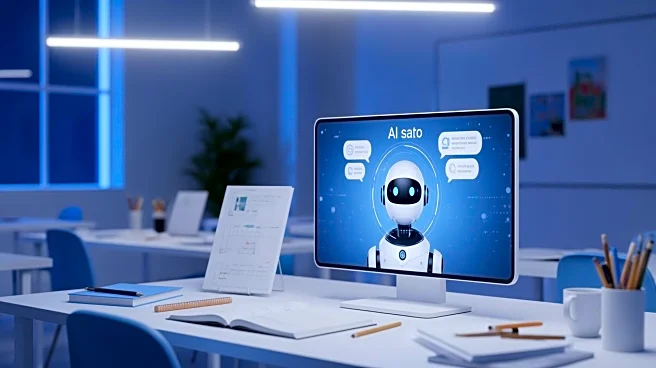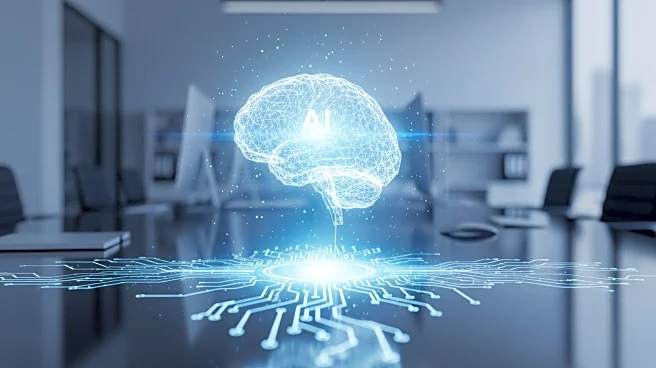What's Happening?
Major technology companies, including Microsoft, OpenAI, and Anthropic, are investing millions of dollars to train U.S. teachers in artificial intelligence (AI) applications. This initiative aims to integrate AI tools, such as chatbots, into educational
settings. Microsoft has committed $12.5 million over five years to the American Federation of Teachers (AFT), while OpenAI is contributing $8 million in funding and $2 million in technical resources. Anthropic has pledged $500,000. The funds will be used to establish an AI training hub in New York City, with plans to expand to additional locations and train 400,000 teachers over the next five years. The National Education Association (NEA) has also partnered with Microsoft, receiving a $325,000 grant to develop AI training programs for its members.
Why It's Important?
This initiative represents a significant shift in the educational landscape, as AI tools become increasingly prevalent in classrooms. By equipping teachers with AI skills, the program aims to enhance educational outcomes and prepare students for a future where AI is integral. The involvement of tech giants underscores the growing importance of AI literacy and the potential for these companies to influence educational practices. However, it also raises concerns about the role of private corporations in public education and the potential for AI to replace traditional teaching methods. The initiative could lead to a more tech-savvy workforce, but it also necessitates careful consideration of ethical and privacy issues associated with AI in education.
What's Next?
The establishment of AI training hubs and the rollout of training programs are expected to continue over the next five years. As these programs expand, educators and policymakers will need to address potential challenges, such as ensuring equitable access to AI tools and maintaining a balance between technology and traditional teaching methods. The success of these initiatives could influence future educational policies and the integration of AI in other sectors. Stakeholders, including educators, tech companies, and government agencies, will likely continue to collaborate to refine and expand AI training efforts.
Beyond the Headlines
The integration of AI in education could lead to long-term shifts in teaching methodologies and curriculum design. As AI tools become more sophisticated, they may offer personalized learning experiences and streamline administrative tasks, allowing teachers to focus more on student engagement and critical thinking. However, this shift also necessitates ongoing dialogue about the ethical implications of AI in education, including data privacy and the potential for bias in AI algorithms. The collaboration between tech companies and educational institutions may set a precedent for future partnerships in other sectors.















